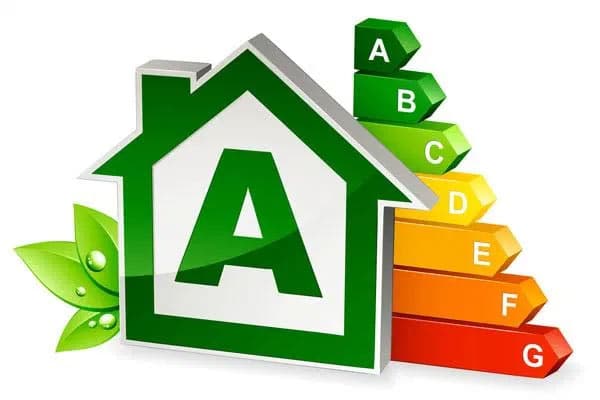
ENERGY UPGRADING OF BUILDINGS, “KEY” TO SAVING ENERGY
Large-scale investments in energy efficiency in buildings and industry are needed, it was emphasized at a RAE event
In multi-ownership, the dense and often anarchic building in the urban environment and in the institutional and legal framework “stumbles” the energy upgrade of buildings in Greece which would significantly contribute to energy savings. The point was made by the professor of energy systems at the Department of Mechanical Engineering, AUTH, Agis Papadopoulos, speaking at an event on “The energy transition until 2030. The new goals of the National Plan for energy and climate” organized by RAE in the context of the 86th TEF, reports APE-MPE. The aim, he added, is to reduce final energy consumption in 2030 by 38% compared to 2017 in all economic sectors (industry, transport, businesses, domestic). As measures to achieve the goal, the energy upgrade of residential buildings, public buildings, the tertiary sector and industrial units, the regime for imposing energy efficiency obligations and the competitive procedures in combination with efficient heating and cooling from RES are defined. “The energy efficiency of most buildings and SMEs in Greece is not satisfactory” the professor found, attributing it to the delay in establishing regulations, the lack of control mechanisms, the very low cost of energy in the past, the operating model of the construction industry and the small size of the companies . “Technological solutions exist but there are difficulties and barriers. Energy savings are not measurable, not easily financed and not politically attractive.” According to Mr. Papadopoulos, the real benefit of saving is the avoided cost, not only of the value of conventional fuel but also of its subsidy. “For too long we have been running behind consumption. At the root of the problem is the reduction of loads, while it is good to remember the added value of the Greek energy saving industry” he concluded.
For his part, the second vice-president of the Energy Regulatory Authority, Dimitris Fourlaris, clarified that the reduction of energy costs can be achieved with targeted actions to save energy, exploitation of domestic sources, market reforms, implementation of measures during the crisis and implementation of the new 2022-2023 RES auction plan with a total capacity of 3.1-4.1 GW of RES projects. “It is logically incoherent and economically inconsistent, especially in the light of the public interest, for projects and services that have guaranteed performance for a long (RES) or permanent duration (operators) to have a permanently higher profit margin than those operating in free competition and are exposed to the relevant risks’.
For Mr. Fourlaris, the crisis requires the redesign of the energy transition with the pillars of economic development, energy security, the reduction of energy costs and the strengthening of social cohesion. “The energy transition also requires a pivotal role for the Regulator. The Independent Authorities are the cornerstones of modern public administration and the effective exercise of their powers ensures the orderly functioning of the markets and the balanced protection of the public interest. Their strengthening is a matter of political will and above all, its implementation, through decisions”.
However, in order to start the path of the green transition, according to RAE Vice-President Pantelis Kapro, first of all we must face the current crisis by reducing gas consumption and start with great speed, large-scale investments in energy efficiency in buildings and in industry.
